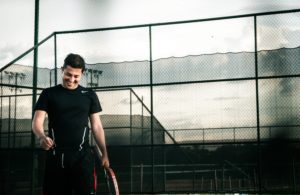What Athletes Need to Know About Nil Law and Compensation
Reading Time: 4 minutes
Recent “name image and likeness” (“NIL”) legislation created a new market for goods and services that have never existed before in college athletics. College athletes now have unlimited potential to capitalize upon their NIL and develop their brands on their terms. College athletes can also utilize cutting-edge technologies to monetize their NIL. College athletes can also sign sponsorship arrangements with businesses and receive compensation for commercial usage of their NIL. A basic understanding of the legal aspects of NIL deals will ensure that athletes understand the rules of this new game.
I. What is NIL?
From a legal perspective, the term “NIL” generally refers to an individual’s legal right to control the usage of their name, image, or likeness. NIL includes any trait of a person that serves to identify that person to an ordinary viewer or listener, including their name, signature, photograph, image, likeness, voice, or a substantially similar copy of any of the foregoing. Individuals have a legal right to protect their NIL from others who attempt to publish, print, display or otherwise publicly use a person’s NIL for trade, commercial, or advertising purposes, without consent.
II. State NIL Laws
States have recently enacted NIL legislation that prohibits universities, conferences, and the NCAA from restricting the right of a student athlete to receive compensation for the NIL. State NIL laws generally provide student athletes attending universities or colleges located within the state with the ability to receive an unlimited NIL compensation without jeopardizing their ability to participate in intercollegiate athletics. The impact of state laws is significant and must be carefully examined because the laws apply differently to student athletes depending on the state they are located. Athletes are also allowed to hire legal professionals to assist with their NIL negotiations and agreements. Student athletes are also generally prohibited from receiving NIL compensation in exchange for attending a specific university.
III. NCAA NIL Enforcement
Recent changes in NCAA NIL policy appear to be geared towards imposing NIL regulations targeted towards universities and boosters/collectives instead of student athletes. The NCAA had provided a long list of restrictions on NIL activities that have not impacted a student athlete’s ability to generate NIL compensation through their own efforts. However, colleges and universities are generally prohibited from soliciting NIL compensation on behalf of the student athlete.
IV.Potential changes to NIL laws
Following Alston, the possibility exists for the NCAA to limit several of the practices that have been occurring following the United State Supreme Court’s ruling. The United States Supreme Court acknowledges the NCAA is only currently enjoined from limiting the education-related compensation or benefits “that may be made available from conferences or schools” to athletes. The United Stated Supreme Court further acknowledged the injunction “does not stop the NCAA from continuing to prohibit compensation from” sneaker companies, auto dealerships, boosters, “or anyone else.” Additionally, the United Stated Supreme Court clearly indicated that the NCAA could continue to prohibit universities and conference from providing compensation or benefits unrelated to legitimate educational activities and delineate which benefits the NCAA considers legitimately related to education. The NCAA appears to have significantly more power and authority to potentially police much of the NIL activities then we are currently witnessing applying the Supreme Court’s decision and reasoning in Alston. However, the NCAA is restricted from prohibiting schools or conferences from restricting compensation related to education.
Conclusion
Navigating the NIL landscape as an athlete requires a careful understanding of the underlying legal authority spurring the recent NIL wave. Student athletes should review the NIL statutes of their states to determines the potential impacts of their NIL deals or arrangements to ensure that they understand the limitations on their ability to receive NIL compensation and the assistance that colleges and universities can provide.


